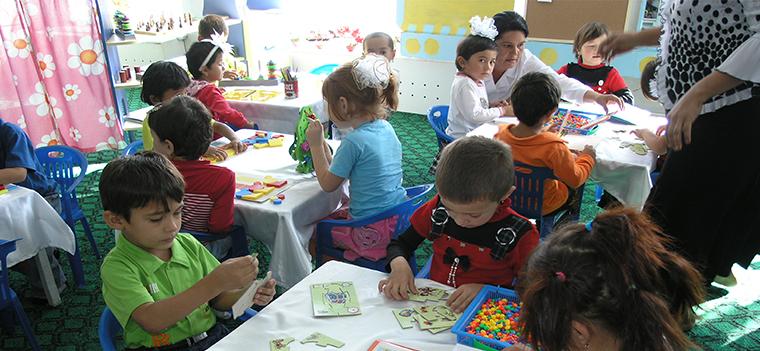News
- ESMAP support underpinned two World Bank projects to help Uzbekistan strengthen its district heating and water systems, and promote industrial energy efficiency.
- A least-cost assessment of Uzbekistan’s heating sector strengthened policies to scale up investments through the World Bank project on district heating.
- ESMAP provided technical support to the World Bank project on industrial energy efficiency to help Uzbekistan attract private investment in the sector.
Uzbekistan’s biting winter temperatures make heating and hot water crucial for people’s well-being, and a well-functioning society and economy. Although Uzbekistan is the world's eighth largest producer of natural gas, its heating in urban centers is inadequate, exposing city dwellers to sub-zero temperatures during winter months.
A large part of the challenge is the lack of investment in the country’s District Heating (DH) sector. DH enterprises are not financially viable, for several reasons including high heat and water losses, poor management, underinvestment, and tariffs that are below cost-recovery levels. To help the DH utilities become financially sustainable for providing affordable quality urban heating services, a better understanding of heating options was needed.
The World Bank’s Energy Sector Management Assistance Program (ESMAP) funded a least-cost assessment of Uzbekistan’s heating sector that looked at options for both supply and demand management. The objective was to identify optimal heating options for residential multi-apartment buildings and public buildings such as schools, kindergartens, hospitals, and city administration buildings for the cities of Anijan, Chirchik and the Sergili district of Tashkent.
Based on the recommendations of this assessment, the government established the Ministry of Housing and communal services in 2017 to guide policy development on district heating. In addition, the Kommunkhizmat Agency was reorganized with a mandate to implement projects in housing, water, sewage, and heating services. The State Program on the Development of District Heating System was adopted, setting ambitious targets to significantly increase energy efficiency and reliability of urban heating sector.
To help reach these targets the WBG approved the District Heating Energy Efficiency Project, which will benefit over 240,000 residents in five cities across Uzbekistan with improved efficiency and quality of heating and hot water services. It will introduce, for the first time, a modern district heating model, specifically targeting residents of apartment buildings in the cities of Andijan, Bukhara, Chirchik, Samarkand, and Tashkent.
In addition to making district heating more energy efficient, efforts are being made to halve by 2030 the energy intensity in industry – one of the most energy-intensive industries in the world. Small and medium-sized enterprises (SMEs), essential to driving manufacturing growth, are operating in relatively energy-intensive fields such as construction materials, textile, and food production and need to upgrade their equipment to become more competitive.
An ESMAP expert provided technical assistance to design the third phase of the $200 million Energy Efficiency Facility for Industrial Enterprises Project to help SMEs reduce energy consumption by becoming more energy efficient. Based on lessons learned from previous rounds of financing, ESMAP assistance helped improve the project. More specifically, it lowered the barriers for SMEs to enter the EE market through a key-equipment-supplier-based approach which quickly assesses EE potential through suppliers of efficient boilers, motors, kilns, and other technologies used by SMEs. This reduces the cost of assessing EE potential and reaches SMEs in the market for new equipment.
ESMAP support also helped design a measurement and verification system for project results, which includes energy savings and GHG emission reductions. This is becoming more important as the government is trying to attract private and commercial financing by demonstrating that repaying investments from energy savings can make the EE model sustainable.
“Modernizing outdated equipment and production processes is crucial for improving the competitiveness of Uzbek enterprises,” said Hideki Mori, World Bank Country Manager for Uzbekistan. “Energy efficiency will help minimize operation and maintenance costs, improve productivity and generate real cash flows. It will also contribute to the mitigation of climate change. We are delighted to expand our energy efficiency support to Uzbekistan through this project.”
July 12, 2018
